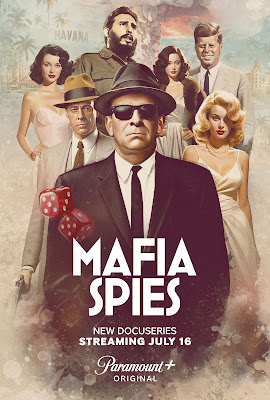The U.S. Justice Department released the below information:
Sue Mi Terry, (seen in the above photo in a red dress), 54, of New York, New
York, was arrested yesterday and presented on criminal charges related to
offenses under the Foreign Agents Registration Act (FARA).
According to court documents, after leaving U.S. government
service and for more than a decade, Terry worked as an agent of the government
of the Republic of Korea (ROK), commonly known as South Korea, without
registering as a foreign agent with the Attorney General, as required by law.
As covertly directed by ROK government officials, Terry publicly advocated ROK
policy positions, disclosed non-public U.S. government information to ROK
intelligence officers and enabled ROK officials to gain access to U.S. government
officials. In exchange for these actions, ROK intelligence officers provided
Terry with luxury goods, expensive dinners and more than $37,000 in funding for
a public policy program focusing on Korean affairs that Terry controlled.
From in or about 2001 to in or about 2011, Terry served in a
series of positions in the U.S. government, including as an analyst on East
Asian issues for the Central Intelligence Agency, as the Director for Korea,
Japan and Oceanic Affairs for the White House National Security Council and as
the Deputy National Intelligence Officer for East Asia at the National
Intelligence Council. Since leaving government service in or about 2011, Terry
has worked at academic institutions and think tanks in New York City and
Washington, D.C. Terry has made media appearances, published articles and
hosted conferences as a policy expert specializing in, among other things,
South Korea, North Korea and various regional issues impacting Asia. Terry has
also testified before Congress on at least three occasions regarding the U.S.
government’s policy toward Korea.
As she admitted in a voluntary interview with the FBI in 2023,
Terry served as a valuable “source” of information for the ROK National
Intelligence Service (ROK NIS), the primary intelligence agency for the ROK.
For example, in or about June 2022, Terry participated in a private,
off-the-record group meeting with a U.S. Secretary level official regarding the
U.S. Government’s policy toward North Korea. Immediately after the meeting,
Terry’s primary ROK NIS point of contact, or handler, picked up Terry in a car
with ROK Embassy diplomatic plates. While in the car, Terry passed her handler
detailed handwritten notes of her meeting, which were written on the letterhead
of a think tank where Terry had recently worked. Terry’s handler then
photographed the notes while still sitting in the car with Terry.
Weeks later, at the request of her ROK NIS handler, Terry hosted
a happy hour for Congressional staff. Although the happy hour was
ostensibly on behalf of the think tank where Terry worked, the ROK NIS paid for
it with Terry’s knowledge. Terry’s handler attended the event and posed as a
diplomat, mingling with Congressional staff without disclosing that he was, in
fact, an ROK intelligence officer.
ROK government rewarded Terry for her services. For example,
Terry’s ROK NIS handlers gifted her a $2,950 Bottega Veneta handbag and a
$3,450 Louis Vuitton handbag, both of which Terry selected during shopping
trips with her handlers. One of Terry’s ROK NIS handlers also gifted her a
$2,845 Dolce & Gabbana coat. In addition to luxury goods, Terry’s ROK NIS
handlers provided her expensive meals, including at Michelin-starred
restaurants. Terry’s ROK NIS handlers also deposited approximately $37,000 into
an unrestricted “gift” account that Terry controlled at the think tank where
she worked. In addition, ROK government officials paid Terry to write articles
in both the U.S. and Korean press conveying positions and phrases dictated by
the ROK government.
Terry is charged with one count of conspiracy to violate FARA
and one count of failure to register under FARA. If convicted, she faces a
maximum penalty of 10 years in prison. If convicted, a federal district court
judge will determine any sentence after considering the U.S. Sentencing
Guidelines and other statutory factors.
Assistant Attorney General Matthew G. Olsen of the Justice
Department’s National Security Division, U.S. Attorney Damian Williams for the
Southern District of New York and Executive Assistant Director Robert R. Wells
of the FBI’s National Security Branch made the announcement.
The FBI’s Counterintelligence Division and New York Field Office
are investigating the case with assistance from the FBI Washington Field
Office.
Assistant U.S. Attorneys Kyle A. Wirshba, Alexander Li and Sam
Adelsberg for the Southern District of New York are prosecuting the case, with
assistance from Trial Attorney Christopher M. Rigali of the National Security
Division’s Counterintelligence and Export Control Section.
A criminal complaint is merely an allegation.
All defendants are presumed innocent until proven guilty beyond a reasonable
doubt in a court of law.







.jpg)






